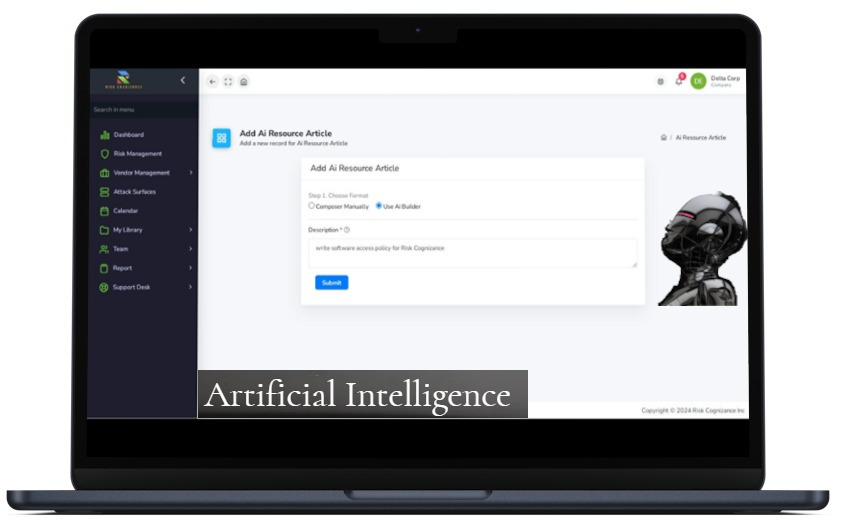Enterprise Risk Management for Managed Security Service Providers (MSSPs)
Understanding MSSPs
Managed Security Service Providers (MSSPs) are third-party organizations that deliver comprehensive cybersecurity services to businesses. These services often include threat detection, incident response, vulnerability management, and compliance monitoring. By outsourcing security functions to MSSPs, organizations can leverage expert knowledge, advanced technologies, and continuous monitoring to enhance their cybersecurity posture
.
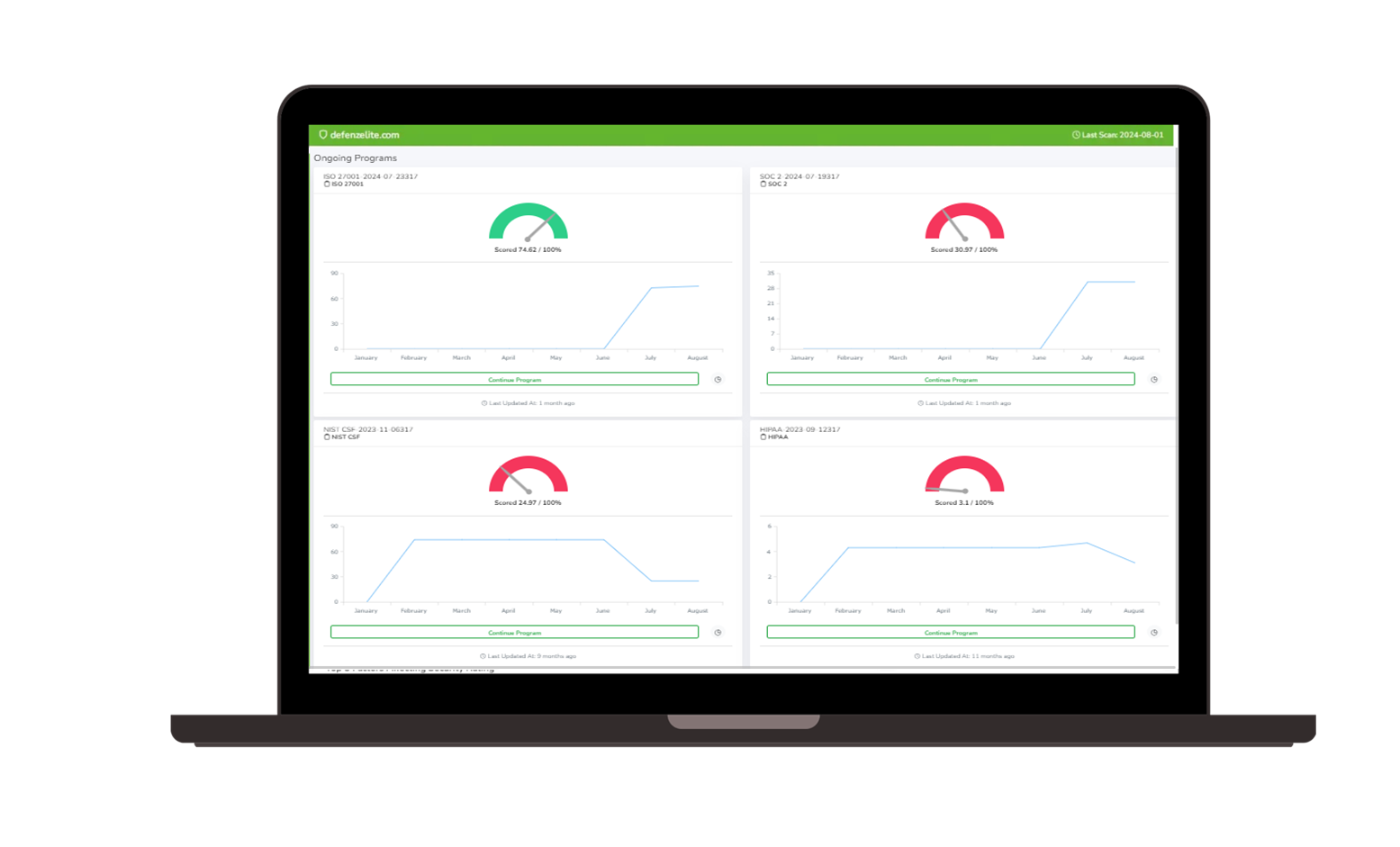 Governance, Risk, and Compliance (GRC) | 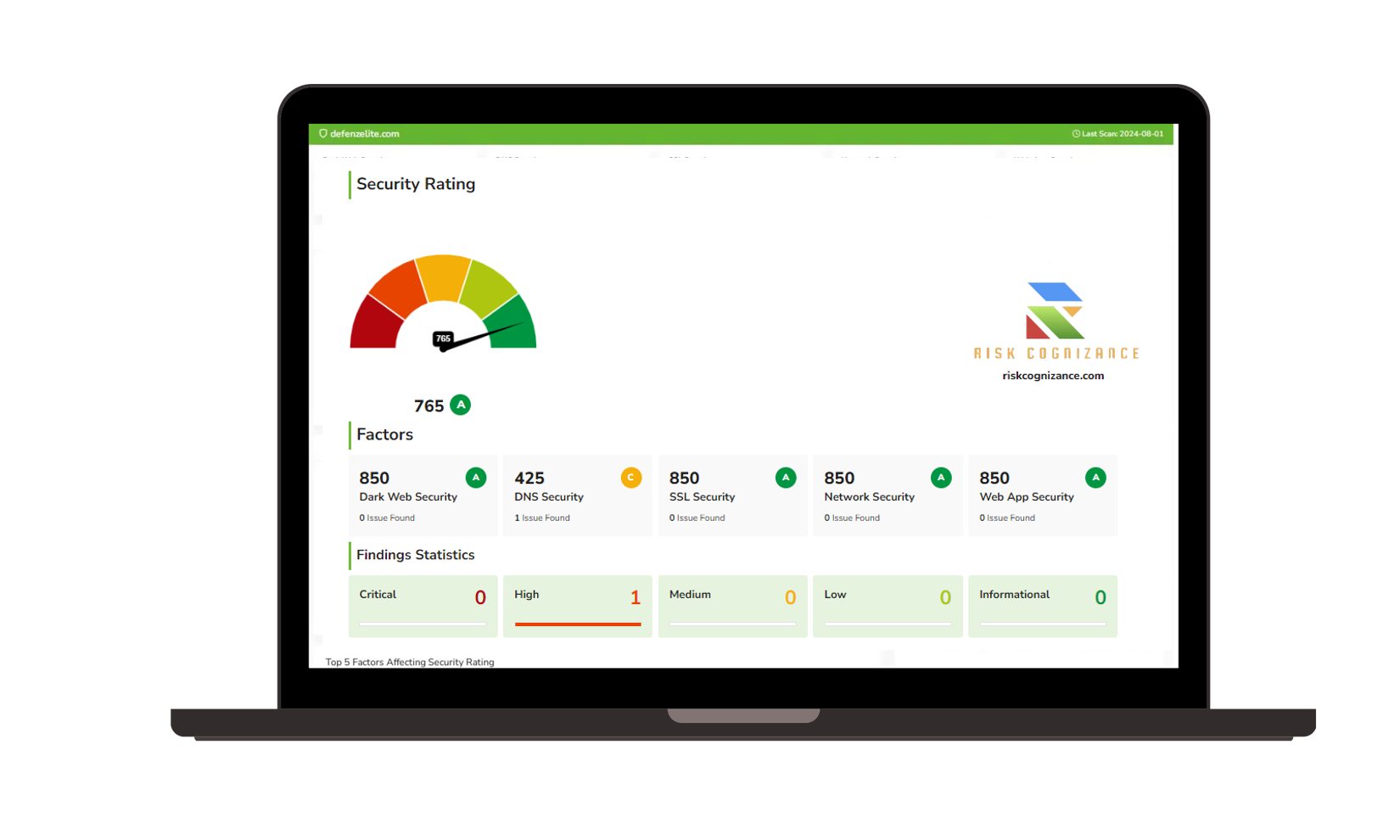 Third-party Risk Management |
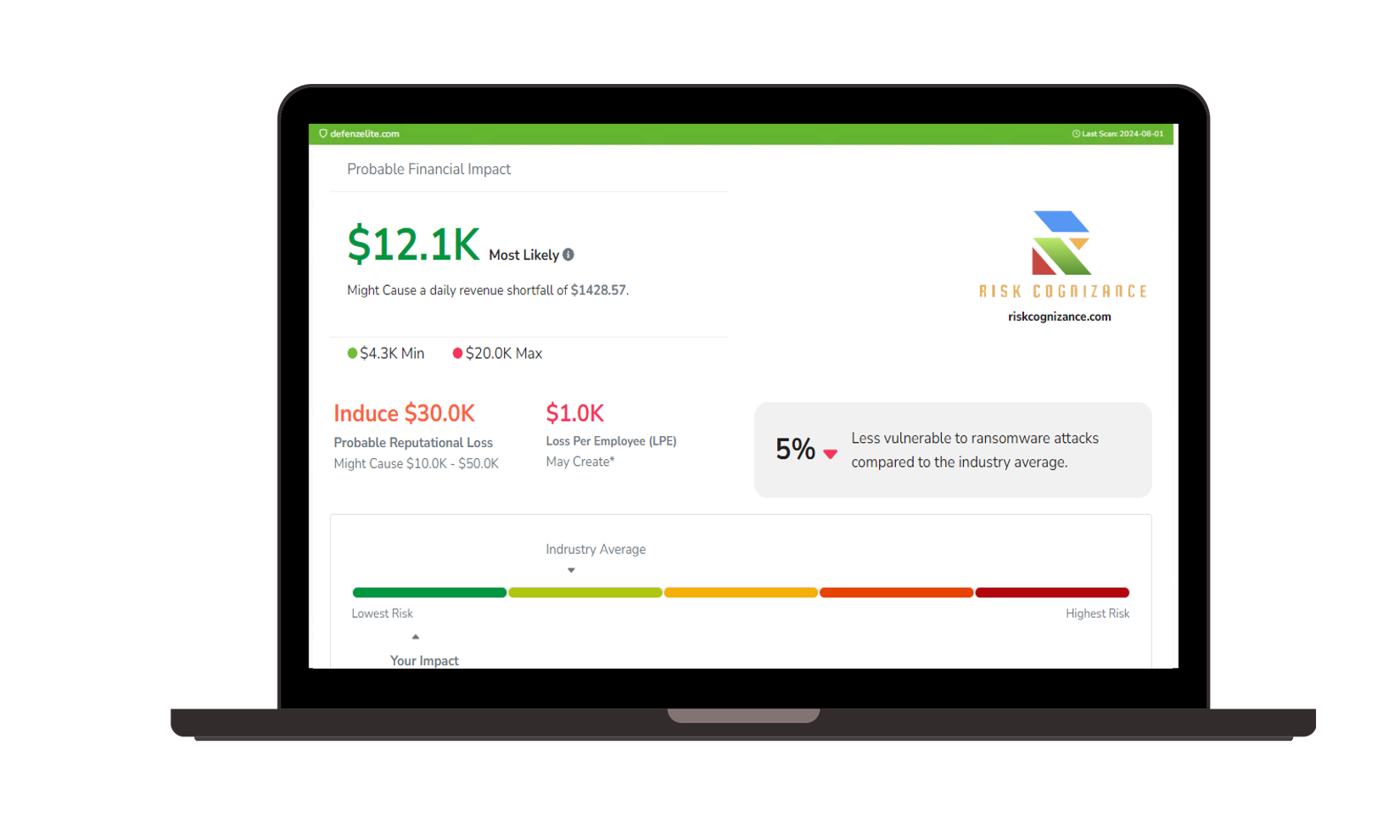 Ransomware Susceptibility | 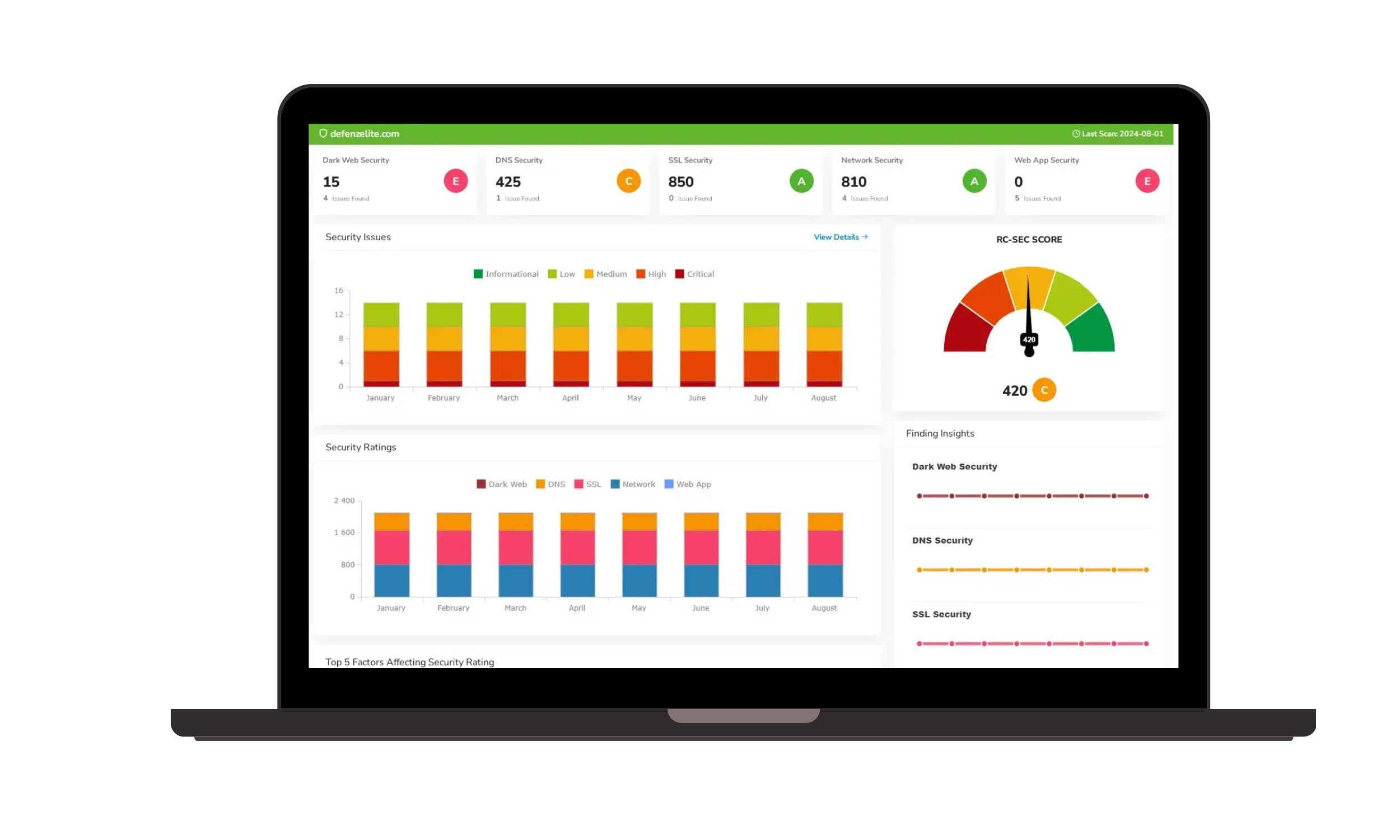 GRC and Attack Surface |
Artificial Intelligence | |
How Risk Cognizance's ERM Can Help Businesses
Risk Cognizance offers an Enterprise Risk Management (ERM) platform specifically designed to assist MSSPs in managing risks more effectively. Here’s how Risk Cognizance's ERM can benefit businesses:
1. Comprehensive Risk Assessment
- Tailored Assessments: Risk Cognizance provides customized risk assessments based on industry standards and specific client needs, ensuring a thorough understanding of unique risk profiles.
- Continuous Monitoring: The platform enables real-time monitoring of risks, allowing MSSPs to identify potential threats proactively.
2. Enhanced Compliance Management
- Regulatory Frameworks: Risk Cognizance helps businesses navigate complex regulatory requirements, ensuring compliance with laws such as GDPR, HIPAA, and PCI DSS.
- Audit Support: The platform assists in maintaining thorough documentation and preparing for audits, streamlining the compliance process for MSSPs and their clients.
3. Effective Risk Mitigation Strategies
- Actionable Insights: The ERM platform provides data-driven insights to inform decision-making and prioritize risk mitigation efforts.
- Incident Response Planning: Risk Cognizance supports the development of robust incident response plans tailored to the specific needs of clients, ensuring preparedness for potential security incidents.
4. Improved Communication and Reporting
- Stakeholder Engagement: The platform facilitates effective communication between MSSPs and their clients, fostering transparency in risk management practices.
- Comprehensive Reporting: Risk Cognizance offers detailed reporting capabilities, providing clients with clear insights into their risk status and the effectiveness of mitigation strategies.
5. Training and Awareness Programs
- Client Education: Risk Cognizance helps MSSPs implement training programs that educate clients on risk management practices and the importance of cybersecurity awareness.
- Ongoing Support: The platform provides resources and tools to ensure that both MSSPs and their clients stay informed about evolving threats and best practices.
Key Features of Risk Cognizance
Risk Cognizance's ERM platform is equipped with robust features that enhance its effectiveness for MSSPs and their clients:
- Centralized Risk Dashboard: Provides a unified view of all risks and compliance metrics, enabling quick decision-making and monitoring.
- Automated Risk Assessments: Streamlines the risk assessment process through automation, reducing time and effort while increasing accuracy.
- Integration Capabilities: Seamlessly integrates with existing security tools and systems, allowing MSSPs to leverage their current technology stack.
- Customizable Risk Frameworks: Supports a variety of risk frameworks (e.g., NIST, ISO 31000), allowing organizations to align risk management practices with their specific requirements.
- Incident Management Module: Facilitates efficient tracking and management of incidents, ensuring timely responses and comprehensive reporting.
- Collaboration Tools: Enables teamwork among stakeholders through shared access to risk data and incident information, promoting a collaborative risk management culture.
- Analytics and Reporting: Advanced analytics tools provide insights into risk trends and the effectiveness of implemented strategies, enhancing strategic planning.
- Mobile Accessibility: Offers a mobile-friendly interface, allowing stakeholders to access critical information and reports on the go.


